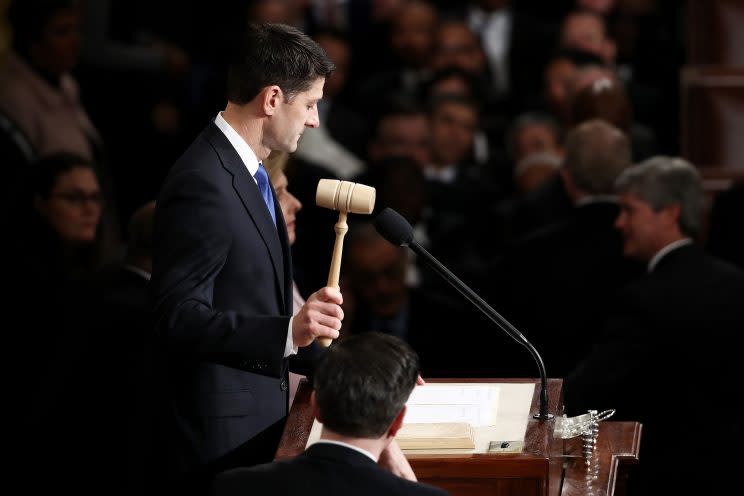House Republicans unveil Obamacare replacement bill

WASHINGTON — House Republicans released their replacement for the Affordable Care Act on Monday night, backing off some ideas that caused controversy in their caucus, such as taxing high-dollar health benefits that employees obtain through their employers.
The bill, which Republicans will continue to revise in committee, repeals Obamacare’s individual mandate. Instead, people who do not make sure they are covered for two months or more in the year before they want to buy health insurance will pay 30 percent higher premiums for a year. This penalty is intended to encourage people to maintain insurance coverage without the mandate. The bill also doles out age-based tax credits to people making less than $75,000, to help them purchase insurance, instead of the income-based subsidies allocated under Obamacare.
The bill retains two popular features of Obamacare: one requiring insurance companies to insure people with pre-existing conditions, and another allowing young adults to remain on their parents’ insurance plans until they are 26 years old.
But the bill repeals most of the taxes imposed under Obamacare, including one on medical devices and another on indoor tanning services, which raises the question of how the bill will be paid for. The bill also avoids the “Cadillac tax” on premium employer health plans, after conservatives complained about any bill that creates new taxes.
Republicans compromised on the hot-button issue in the bill: Medicaid expansion. The 31 states that expanded Medicaid access under Obamacare will be allowed to continue to enroll new people until 2020. They will then be required to stop offering expanding Medicaid, with the hope that some people will leave the program and that it will shrink. States that did not expand Medicaid will receive $2 billion.
The bill faces a potentially rocky road ahead, with conservatives in the caucus sure to raise questions about how the bill will be paid for, and Democrats protesting that some Americans will lose coverage.



